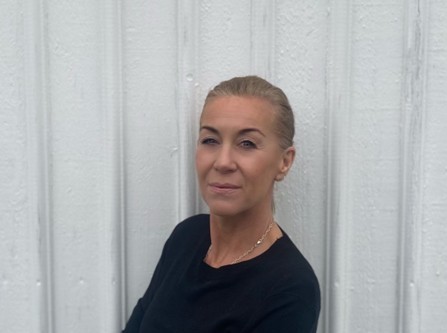This Week's Inspiration Per Friberg
This week's inspirational person is Per Friberg, CEO of Nordic Leather Group, a company that for many years has not "just talked about social sustainability" but fully applies it in everyday life and daily work! Read more here and be inspired by Per's experiences and reflections.

.jpg)
This week's inspiration is Per Friberg, CEO of Nordic LeatherGroup, a company that for many years has not "just talked about social sustainability" but fully applies it in everyday life and daily work! Read more here and be inspired by Per's experiences and reflections.
Social sustainability is often mentioned as a soft issue. How can you link it to your business strategy and competitiveness?
For us, social sustainability is not about an extra cost but about maximizing the potential of people who would otherwise be excluded. When we include these individuals in our workforce, we gain access to a unique talent pool and create a commitment that directly affects our productivity and innovation. It gives us a strong "why", which not only strengthens our internal culture but also makes us more competitive globally. Our example shows that a company can grow and succeed by valuing people and their unique abilities.
How can other companies benefit from social sustainability, is it difficult?
No, the most important thing is to start. Identify roles in the business where people who are excluded can make a difference without requiring large investments. Many underestimate the potential of individuals who do not follow the norm, but by creating the right match between individual and task, the result can be unexpectedly positive.
What challenges have you encountered when working with social sustainability?
One of the biggest challenges has been getting the entire organization to understand why we are investing in social sustainability. It can be difficult to change ingrained ways of thinking and routines. But when we started showing concrete results, both in terms of increased productivity and a stronger cohesion in the group, more people began to understand the value.
What would you say to companies that are still skeptical about social sustainability?
I would say that social sustainability is not just about doing something good for society, it is also a smart business strategy. When you invest in people who have been marginalized, you get loyal and motivated employees who can often contribute more than you expect. In the long run, it strengthens the company's cohesion and innovation. Working with these issues not only makes us more competitive, it also creates a work environment where everyone feels they contribute and make a difference.
Can social sustainability affect our global competitiveness?
Sweden faces a challenge if we do not learn to better utilize the potential of people who fall outside the norm. We cannot and do not want to compete with the wages and working conditions that prevail in the world, but we can get help from a workforce that society today indirectly already pays for. Many of these individuals possess strengths that neither you nor I can match – they can be extremely resilient, extremely accurate, fast, or have exceptional focus. To maintain our global competitiveness, we must stop wasting this talent and instead create opportunities for them to be part of working life.
Contact
What challenges are you facing today? - We would love to hear from you!





